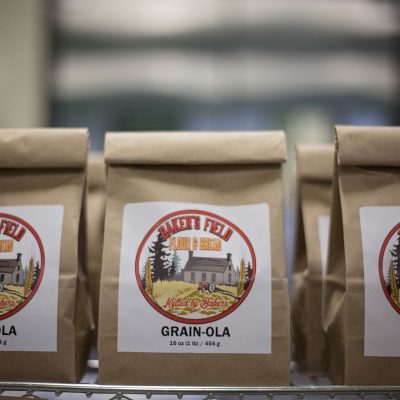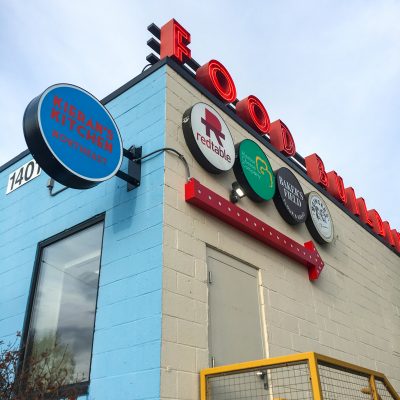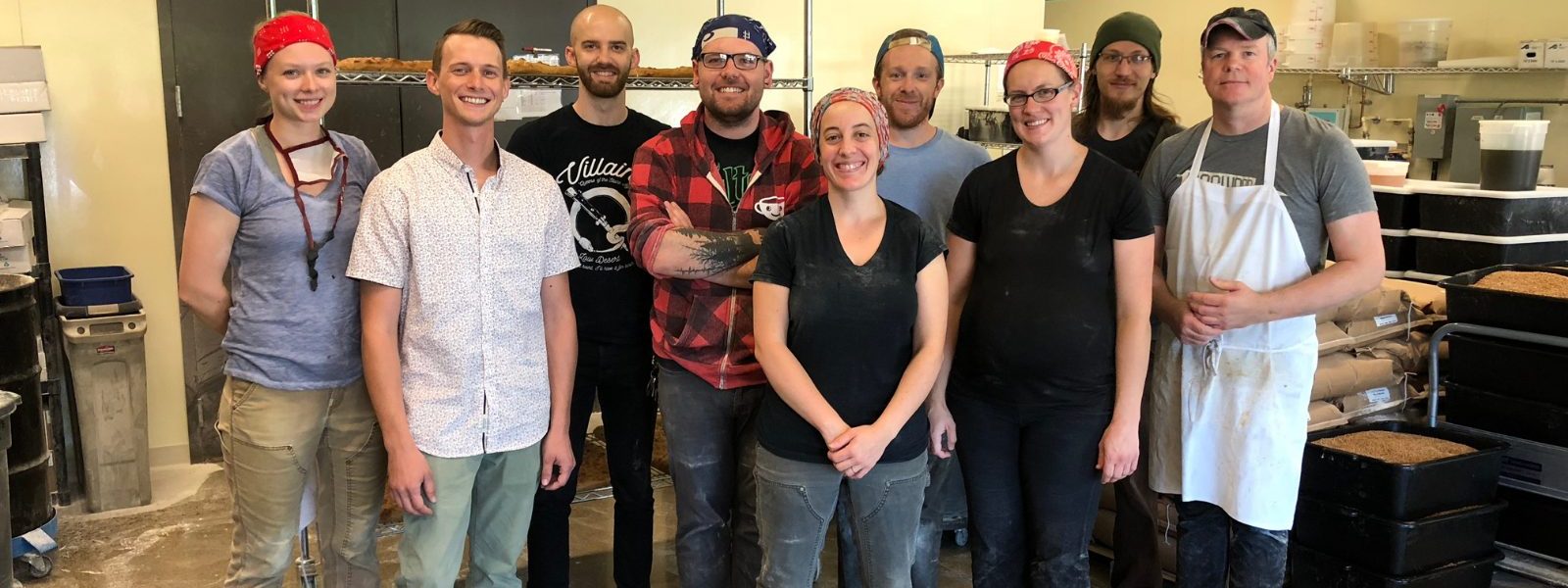This story was originally printed in our 2019 Winter edition of Sprout!
“Our partnership relies on our shared philosophy of values-driven food, and prioritizing ethical values of honesty, openness, social responsibility and caring for others.” —Steve Horton, head miller and baker and co-owner of Baker’s Field
Community Foods was created to celebrate farmers and producers whose stories illustrate Seward Co-op Ends Statement. Baker’s Field Flour & Bread, a Community Foods producer, began with the mission of baking better bread with better flour by creating a local grain economy. Since the beginning, Seward Co-op has recognized their mission and has been a supporter. Baker’s Field not only brings high-quality food and ingredients to our stores, but
also works to cultivate a healthy community.
 The impact of direct-producer relationships is “evidenced in specific ways and more globally,” according to Steve Horton, head miller, baker and co-founder of Baker’s Field. Specific impact comes with the everyday quality of product shoppers have come to expect. Horton shared a request he received from a Seward Co-op community member asking for a softer, more kid-friendly bread that was as nutritious as their other varieties. Horton and his team heard them out and Good ’Wich bread was created!
The impact of direct-producer relationships is “evidenced in specific ways and more globally,” according to Steve Horton, head miller, baker and co-founder of Baker’s Field. Specific impact comes with the everyday quality of product shoppers have come to expect. Horton shared a request he received from a Seward Co-op community member asking for a softer, more kid-friendly bread that was as nutritious as their other varieties. Horton and his team heard them out and Good ’Wich bread was created!
Baker’s Field began with the desire to create a local grain economy by connecting with farmers to create demand for quality grains. Local grain is not only more flavorful, but resilient and regenerative for the soil in a changing climate. Once Baker’s Field receives the local grain, the bakers use stone mills to grind it themselves. By connecting the bakers’ demand for quality flours with the farmers’ desire to grow unique breeds of grains, Baker’s Field Flour & Bread links the key people necessary to make delicious bread: farmers, millers and bakers.
In the Food Building, Baker’s Field, along with other Community Foods producers you’ll find at the co-op—Alemar Cheese Co. and Red Table Meat—came together to create a unique culinary experience. Horton notes the Food Building’s goal is “responsibly creating the best tasting food. We want to create local economies around what we do, to create a chain from grower to maker to seller to eater that is truly local, and benefits our community.” The Food Building makers intentionally source from and create partnerships with local farmers. Additional practices at the Food Building that work to support a healthy community are demonstrated in their environmental practices to minimize trash waste and reduce energy use with solar panels on their roof.
 Horton extends a warm invitation to community members to see the producers at work and “experience deliberate sourcing in action on the plate” at the Food Building. You can enjoy quality foods from producers and makers that work to live out our shared values all under one roof. Supporting producers and farmers that align with co-op values not only delivers high-quality foods to feel good about, but also helps to foster a healthy community.
Horton extends a warm invitation to community members to see the producers at work and “experience deliberate sourcing in action on the plate” at the Food Building. You can enjoy quality foods from producers and makers that work to live out our shared values all under one roof. Supporting producers and farmers that align with co-op values not only delivers high-quality foods to feel good about, but also helps to foster a healthy community.
